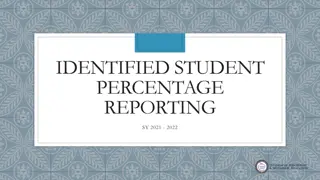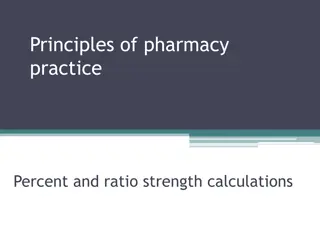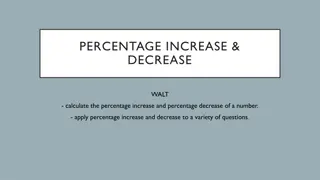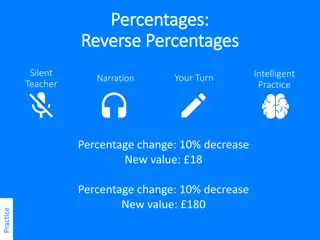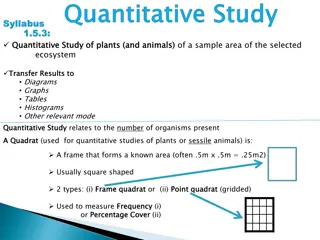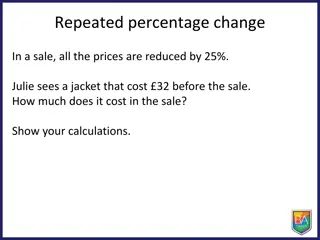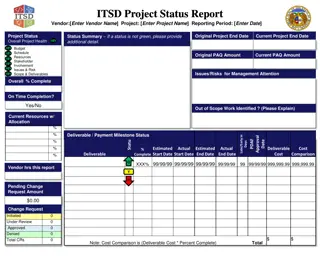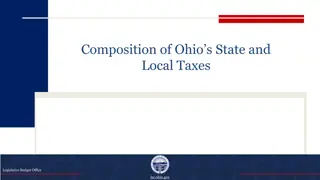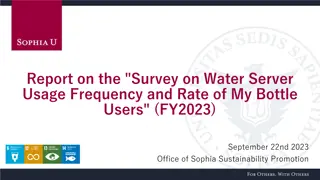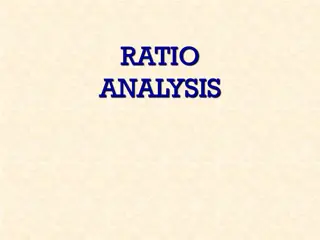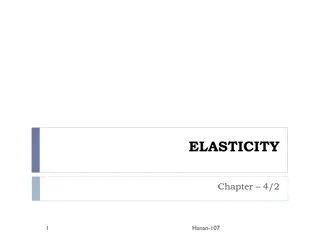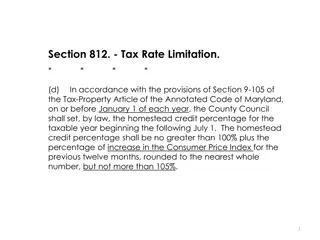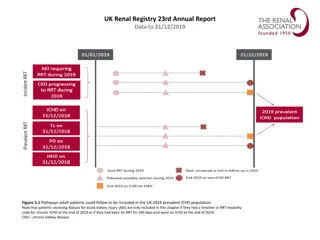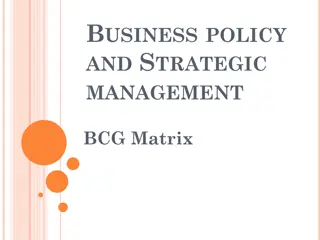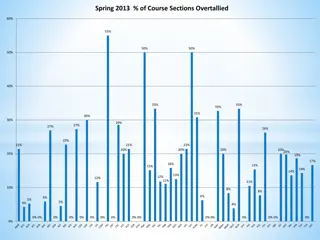Share Market Classes by Anish Singh Thakur
In today\u2019s fast-paced financial world, understanding the intricacies of the share market is not just an advantage \u2014 it\u2019s a necessity. For beginners and seasoned traders alike, the share market can seem like a labyrinth of opportunities and risks. This is where the well-structured Shar
3 views • 9 slides
SHARE!Collaborative Housing
SHARE! Collaborative Housing, contracted with various government agencies in Los Angeles, provides immediate housing solutions for individuals experiencing homelessness. Through a participant-centered model focused on healing trauma and building social connections, SHARE! aims to disrupt homelessnes
0 views • 9 slides
Understanding Financial Leverage and Its Implications
Financial leverage refers to a firm's ability to use fixed financial costs to amplify the impact of changes in earnings before interest and tax on its earnings per share. It involves concepts like EBIT, EBT, preference dividends, and tax rates, and can be measured through the degree of financial lev
1 views • 7 slides
Understanding Green Chemistry Principles and Efficiency in Chemical Processes
Green chemistry focuses on designing sustainable chemical products and processes to minimize hazardous substances. It advocates for waste prevention, efficient reactions, and use of raw materials. Chemical engineers play a key role in optimizing percentage yield and atom economy for efficient produc
0 views • 49 slides
Identifying Student Percentage Reporting SY 2021 - 2022
Identified Student Percentage Reporting (ISP) is essential for districts to report the number of students identified through direct certification and categorical lists in eSchool. This report must be submitted by April 15, 2022, to comply with federal regulations. Understanding how ISP is calculated
1 views • 12 slides
Pharmacy Practice: Percentage and Ratio Strength Calculations
Understanding percentage and ratio strength calculations is crucial in pharmacy practice. Percentages can be expressed as fractions or decimals, and various concentrations like weight-in-volume and volume-in-volume are used in pharmaceutical preparations. Learn how to calculate the correct strength
0 views • 24 slides
Financial Data Analysis and Visualization Overview
Analyzing the financial data provided, we observe various amounts with corresponding percentage values. These values range from $2,832.00 to $54,900.00, each associated with a specific percentage. The data entails a mix of numeric values and percentages, offering insight into different categories of
0 views • 2 slides
Understanding Percentage Increase and Decrease in Mathematics
Explore the concepts of calculating percentage increase and decrease of a number, applying these calculations to various scenarios, and mastering the skills to find any percentage of any amount. Test your knowledge with quick exercises and delve into using strategies to complete tables for practice.
1 views • 24 slides
Understanding the Physico-Chemical Properties of Cream
This informative material delves into the physico-chemical properties of cream, covering aspects such as viscosity, whipping quality, titratable acidity, specific gravity, and factors influencing viscosity. It discusses the influence of fat content, temperature, homogenization, cooling, aging, and c
0 views • 8 slides
Understanding Dividend Policy and Share Repurchase in Corporate Finance
Firms in corporate finance make decisions on dividend payouts and share repurchases, impacting company value and shareholder returns. Dividends are payments to shareholders, while share repurchases involve buying back company stock. Companies can choose between these methods based on various factors
1 views • 29 slides
Understanding Gravimetric Analysis in Chemistry
Gravimetric analysis is a technique used to determine the amount of an analyte in a sample by converting it into a measurable product. This method provides high accuracy when performed correctly but requires skilled operators. An example involves determining the percentage of iron in a sample by pre
0 views • 27 slides
The Share Percentage System for Mobility in ASEM Context
Exploring the Share Percentage System for mobility in the context of ASEM, this article emphasizes the importance of common credit transfer systems and lessons learned from EU-SHARE. The system is based on aligning national qualification frameworks, comparability of study program learning outcomes,
0 views • 28 slides
Understanding Percentage Changes and Reversals in Practice
Explore various percentage change scenarios involving increases and decreases, with examples and calculations to help you master the concept. Engage in intelligent practice exercises to sharpen your skills further. Visual aids and step-by-step guidance enhance comprehension.
0 views • 4 slides
Mastering Percentage Changes: Examples and Practice
Dive into the world of percentage changes with worked examples and practice scenarios. Learn how to calculate percentage changes from original values to new values, sharpen your skills, and gain confidence in handling percentage calculations. Explore various scenarios with different numerical values
0 views • 4 slides
Subnational Population Projections Using Ratio Method: Advantages and Variations
The ratio method, particularly the constant share and shift-share variations, is commonly used for projecting small area populations when data for the component method are lacking. It involves holding the smaller area's share of the parent population constant or allowing for changes over time. Care
1 views • 12 slides
Quantitative Study of Plants and Animals Ecosystem Using Quadrats
Conduct a quantitative study of plants and animals in a selected sample area using quadrats. Utilize frame and point quadrats to measure frequency and percentage cover of organisms. Randomly place quadrats, record data, and calculate average percentage cover. Create frequency tables and graphs to vi
0 views • 6 slides
Tracking Cost Share in PeopleSoft Grants Module
Cost share in grants occurs when a portion of costs is not covered by the sponsor but by resources within the university. Learn how to track cost share using the PeopleSoft Grants Module and understand the University's chartfield structure. Explore examples and the process of managing cost share exp
0 views • 14 slides
Innovative Method for Portraying Cutaneous Diseases by Body Area Involvement Percentage
A unique approach utilizing a custom map creator to visually represent cutaneous diseases based on body area involvement percentage. The process involves manual tracing of body areas on custom maps created efficiently to provide a color-coordinated heatmap presentation. This method, developed at The
0 views • 6 slides
Understanding Concentration of Solutions in Physiology
Concentration of solutions is crucial in understanding the properties of substances in Physiology. This involves concepts like percentage solutions and molar solutions, where the amount of solute is measured in grams or moles relative to the volume of the solution. Percentage solutions are commonly
0 views • 8 slides
Repeated Percentage Change Challenges
Explore various scenarios involving repeated percentage changes such as sales, investments, savings, and value depreciation. Test your math skills with calculations, understanding multipliers, predicting outcomes, and debunking misconceptions. Challenge yourself with practical examples to master the
0 views • 8 slides
ITSD Project Status Report - Vendor & Project Overview
This ITSD Project Status Report provides a comprehensive update on the current status of a specific project, including health, scope, deliverables, budget, schedule, resources, stakeholder involvement, issues, risks, completion percentage, on-time completion status, out-of-scope work, milestone stat
0 views • 10 slides
Composition of Ohio's State and Local Taxes Revealed
Ohio relies heavily on sales taxes for state and local government tax revenue. In FY 2019, Ohio's combined state and local tax revenue sources included property taxes, individual income tax, and sales taxes. Sales taxes accounted for the highest percentage of revenue, followed by property taxes and
0 views • 4 slides
Managing Summer Cost Share for Faculty with 9-Month Appointments
Explore the process of setting up and monitoring summer cost share for faculty with 9-month appointments. Learn why cost share for summer may not display on the FEC, how GCA establishes cost share using the Cost Share Module, and how departments should adjust the FEC to reflect summer cost share acc
0 views • 15 slides
Advancing Women's Leadership in Academic Medicine: A Focus on UFCOM
This presentation highlights the current status and future goals of women's leadership and advancement at UFCOM, focusing on the percentage of women faculty compared to national data, women's perceptions of advancement opportunities, and the importance of women in leadership roles. It discusses the
0 views • 19 slides
Survey on Water Server Usage Frequency and Rate of My Bottle Users
The Office of Sophia Sustainability Promotion conducted a survey to assess the frequency of water server usage and the percentage of students who bring their own bottles to campus. The survey aimed to understand the effectiveness of water servers in promoting sustainable practices and reducing plast
0 views • 12 slides
Understanding Percentage Composition in Chemistry
Percentage composition is crucial in determining the elemental composition of compounds. This lesson explains how to calculate percentage composition using molar masses, illustrated with examples like copper sulfide. It also delves into hydrated salts and their significance in chemistry. Students wi
0 views • 22 slides
Understanding Percentages - Dr. Frost's Year 7 Math Lesson
Dive into the world of percentages with Dr. Frost in this lesson designed for Year 7 students. Learn how to calculate percentage changes, find percentages of amounts, and solve worded percentage problems. Practice your skills with quickfire questions and exercises to test your understanding. Explore
0 views • 21 slides
Understanding Repeated Percentage Changes in Sales and Investments
This content covers examples and calculations related to repeated percentage changes in sales and compound interest investments. It explains how prices are affected when all items are reduced by a certain percentage in sales, as well as scenarios involving compound interest investments over multiple
0 views • 17 slides
Understanding Ratio Analysis for Business Performance Evaluation
Ratios in ratio analysis are crucial for analyzing and comparing business performance over time and against other businesses. They are categorized into profitability, liquidity, and efficiency ratios. Profitability ratios like gross profit percentage, net profit percentage, and return on capital emp
0 views • 31 slides
Understanding Elasticity in Economics
Elasticity in economics refers to the responsiveness of demand to price changes. A more elastic curve results in larger quantity changes for small price changes, while a less elastic curve requires larger price changes to affect quantity consumed. The elasticity of demand can be measured by calculat
1 views • 13 slides
Understanding Degrees of Elasticity of Demand
Elasticity of demand refers to the responsiveness of quantity demanded to changes in price. Perfectly elastic demand occurs when there is an infinite demand at a particular price and demand becomes zero with a slight rise in price. Conversely, perfectly inelastic demand occurs when there is no chang
0 views • 11 slides
Understanding Fair Share and Percentage Changes
Dive into the concept of fair share and percentage changes with practical examples on calculating increases and decreases. Explore scenarios of pay raises, product discounts, and percentage adjustments to enhance your understanding of these math concepts.
0 views • 11 slides
The History and Evolution of Share Magazine: A Journey of Unity and Support
Share magazine has a rich history dating back to its origins as a newsletter in 1949 by the London group. Over the years, it transitioned into a magazine format titled SHARE, dedicated to promoting unity within AA. The magazine underwent significant changes in October 1972, reflecting shifts in memb
0 views • 48 slides
Optimizing Queries and Constructing Percentage Cube in Business Intelligence
Presented at ENSMA, this paper introduces optimized strategies for constructing a percentage cube to enhance processing of complex queries in modern business intelligence. It discusses challenges, comparison between percentage queries and percentage cube, and showcases a data cube analysis of car sa
0 views • 21 slides
Proposed Charter Amendment for Homestead Credit Percentage Deadline Change
The proposed bill CB-48-2020 seeks to amend Section 812 of the Prince George's County Charter by changing the deadline to set the homestead credit percentage, ensuring it is no less than 100% and does not exceed 110% for any taxable year. The County Council provides ballot language for voter approva
0 views • 8 slides
UK Renal Registry 23rd Annual Report 2019 Data Analysis
The UK Renal Registry's 23rd Annual Report provides comprehensive data on the pathways followed by adult patients to be included in the UK 2019 prevalent ICHD population. The report includes figures on percentage of patients with URR >65%, median URR achieved, changes in URR by sex between 2009 and
0 views • 19 slides
Understanding BCG Matrix: Market Growth and Relative Market Share
BCG Matrix, developed by Bruce Henderson of the Boston Consulting Group, categorizes business units into Question Marks, Stars, Cash Cows, and Dogs based on market growth and relative market share. Market share and market growth are crucial factors in determining a company's position in the market.
0 views • 31 slides
Analysis of Course Sections Overfilled in Spring and Fall 2013
Analysis of the percentage of course sections overfilled in Spring and Fall 2013 shows a range of rates across various subjects. Spring 2013 had a higher percentage of overfilled course sections compared to Fall 2013. The comparison between Spring and Fall 2013 courses indicates notable disparities
0 views • 8 slides
Guide for Setting Up Counter Percentage Bar Blocks
Learn how to create and customize Counter Percentage Bar blocks on your website step-by-step. Discover how to add titles, set background themes, select visibility options, and customize colors for your titles effortlessly.
0 views • 21 slides
Enhancing Detroit Bike Share Program for Accessibility
Detroit Bike Share & Programs to Educate All Cyclists (PEAC) aims to build an inclusive bike share system. The proposal includes offering a variety of cycles for different abilities, hiring a coordinator for individuals with disabilities, and providing training. Two accessible bike share scenarios a
0 views • 7 slides




